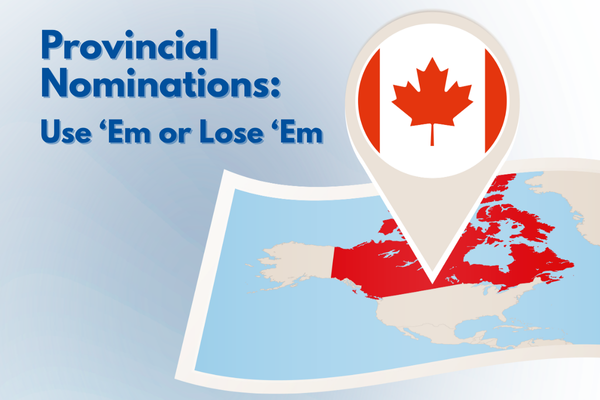Saskatoon 23 October — With its highly anticipated platform set to launch on October 25, Immigrate Software is poised to redefine how Canadian companies recruit global talent. At a recent event, Cofounders Keli Propp, CEO, and Dirk Propp, President, gave insight into the story of Immigrate’s game-changing solution in international hiring.
The Story That Started It All
According to the Canadian Federation of Independent Business (CFIB), 73% of small business owners worked extra hours to compensate for staffing shortages in 2022 (1). In Saskatchewan, where Immigrate Software was founded, the CFIB found that 59% of business owners were affected by labour shortages.
Dirk Propp led a busy immigration consultancy in Saskatoon for 17 years, and saw the impact of short staffing within the local business community - along with a technology-enabled solution.
In 2017, Dirk and Keli Propp cofounded Immigrate Software, knowing that international mobility could build Canada’s economy amidst a wave of retirements and slowing population growth.
Immigrate’s managed services platform automates job advertisement posting in Canada first. If there are no suitable applicants, it connects Canadian employers with experienced workers from around the globe. Finally, Immigrate automates the kinds of applications employers need in order to bring their new hires to Canada.
“Employers were spending 40 hours on a single immigration application, but with automation and technology, we can get the process down to 3 hours. People used to file tax forms manually too, but in 2023 it just makes sense to let technology transform the process,” said Immigrate Cofounder and CEO Keli Propp.
As a proud female tech founder, Keli is driven by customer stories and her passion to solve real-world problems. "Every day, we make a difference for Canadian businesses and families ready to call Canada home," Keli says.
The Prairie Tech Company Transforming Immigration
It’s no accident that Immigrate has taken root in Saskatchewan’s tech scene, which has been called the “Silicon Prairie.” A member of the Saskatoon business community for years, founder Dirk Propp knew about the labour shortages employers in his network faced. He also saw amazing local talent to build Immigrate’s product. Their team has now grown to nearly 40 people.
Immigrate puts their own products to use when local talent isn’t available, bringing experienced professionals into the community. They see this type of mobility as a major boon to the economy.
“We want to grow our local economy. If local talent isn’t available for a certain role, let’s bring in someone world class, with amazing experience. When we welcome them to our community, we build a province with these incredible professionals that diversify our teams, economies, and networks,” said President and Co-founder Dirk Propp.
The Road Ahead
As the economy recovers from a global pandemic, it still struggles with a shrinking workforce. Dirk and Keli Propp say that the problem won’t go away soon, with increasing retirements that outpace new professionals entering the workforce.
Describing the impact of the Covid-19 pandemic on their business, Immigrate client Will Brown commented, “We were missing over a third of our workforce and we had a huge gap. It was just an incredible situation that we were in. And the big question that we had is… where are we going to find 450 qualified candidates?”
With Immigrate’s support, Will was able to bridge the gap to keep business on track.
“As we launch the newest version of our technology, we’re building this solution that will grow the economy and solve challenges which hold businesses back. On top of that, we get to make immigration dreams come true. Coming to Canada is a life-changing opportunity for so many, and it’s amazing to be part of that,” said Keli Propp.
About Immigrate Software
Immigrate Software is revolutionizing the immigration process, making it seamless, efficient, and empowering for both businesses and individuals. This managed services platform brings together years of industry expertise, technological innovation, and a profound understanding of real-world immigration challenges to offer a comprehensive solution to Canadian businesses facing labor shortages.

